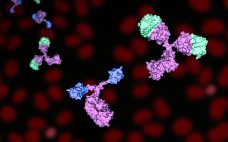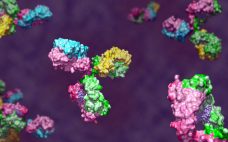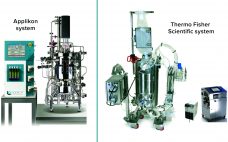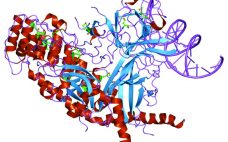Monoclonal antibodies (MAbs) remain the dominant biopharmaceutical product class, but as biotechnologies have advanced in recent decades, developers have found ways to exploit their âmagic-bulletâ capabilities while putting aside their limitations. That has led to a new generation of antibody-related therapeutics created by cutting and pasting molecular domains. Researchers are mixing and matching functional moieties of antibodies and other molecules to create custom-designed proteins with powerful efficacy and tunable targeting. A simple search at Taylor & Francis Online (https://www.tandfonline.com), the…
Wednesday, February 9, 2022 Daily Archives
Development and Manufacture of Therapeutic Bispecific Antibodies
To meet the ongoing need for new and improved drugs, the biopharmaceutical community strives to create molecules with new functions. Bispecific antibodies (bsAbs), which can simultaneously home in on two different targets, illustrate the scientific ingenuity needed for this task. The basic proof of concept for these complex molecules was established in 1960 (1), and their application to the redirection of effector cells was reported in the mid-1980s (2â4), but producing them has proved to be challenging. Many technical advances,…
Expression of Recombinant Antibody Fragments: High-Density Fermentation in Multiuse and Single-Use Systems
Single-use fermentors (SUFs) offer dramatic advantages over traditional stainless-steel clean-in-place (CIP)/sterilization-in-place (SIP) fermentors. Single-use technology eliminates the need for steam, chemicals, and water to clean and sterilize stainless vessels, which provides a direct reduction in capital cost and environmental-impact mitigation. Single-use platforms also increase equipment and process flexibility significantly, making it possible to switch campaigns from one product to another in minimal time, while eliminating cleaning and associated validation steps (1). Both Cytiva and Thermo Fisher Scientific offer SUFs that…
Lymphocyte Activation Gene 3 in Immunooncology: A Soluble Protein Alternative
Early in 2021 at the American Society of Clinical Oncologyâs (ASCOâs) annual meeting, attendees witnessed the first validation of a novel checkpoint target: lymphocyte activation gene 3 (LAG-3). Bristol Myers Squibbâs (BMSâs) recent success in a phase 3 study of the relatlimab anti-LAG-3 monoclonal antibody (MAb) proved that the combination of LAG-3 and programmed cell death protein 1 (PD-1) is more effective than the standard of care in first-line metastatic melanoma (1). For about seven years, that standard has been…
Twist leaves gene production problems behind; looks to âFactory of the Futureâ
Twist Bioscience reported a robust first quarter, having overcome a gene production issue last year that led a temporary halt in supply. For the first quarter fiscal year 2022, DNA synthesis firm Twist Bioscience reported revenues and orders of $42 million and $49.6 million, up 50% and 48% year-on-year, respectively. This included around $13.5 million in gene production for Twistâs partner with SynBio, a deal inked in 2017 that sees the firm manufacture synthetic DNA up to 3.2 kilobases in…





